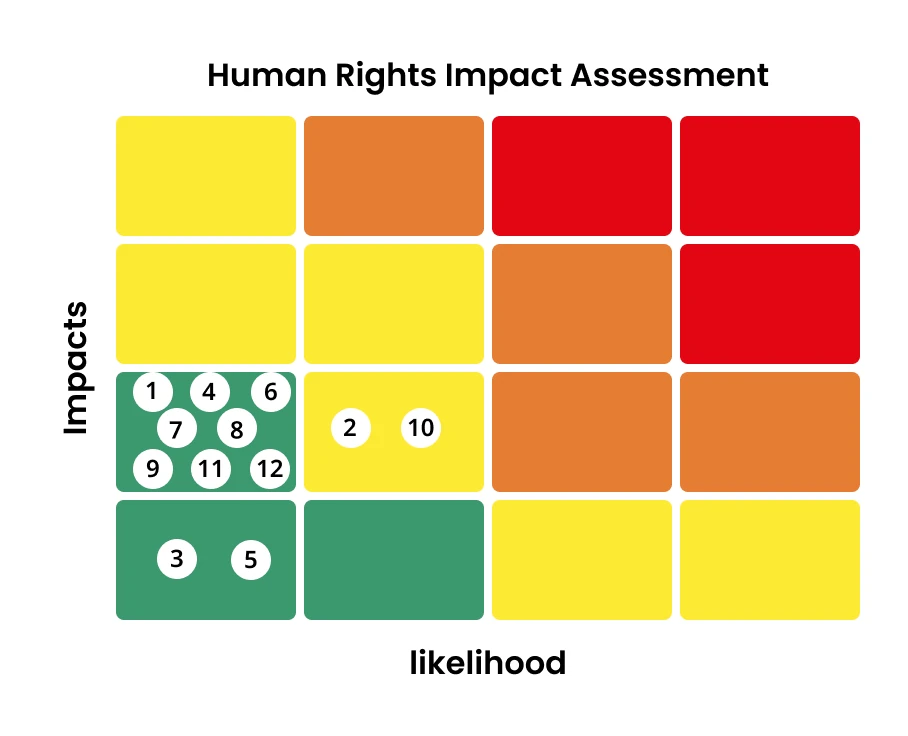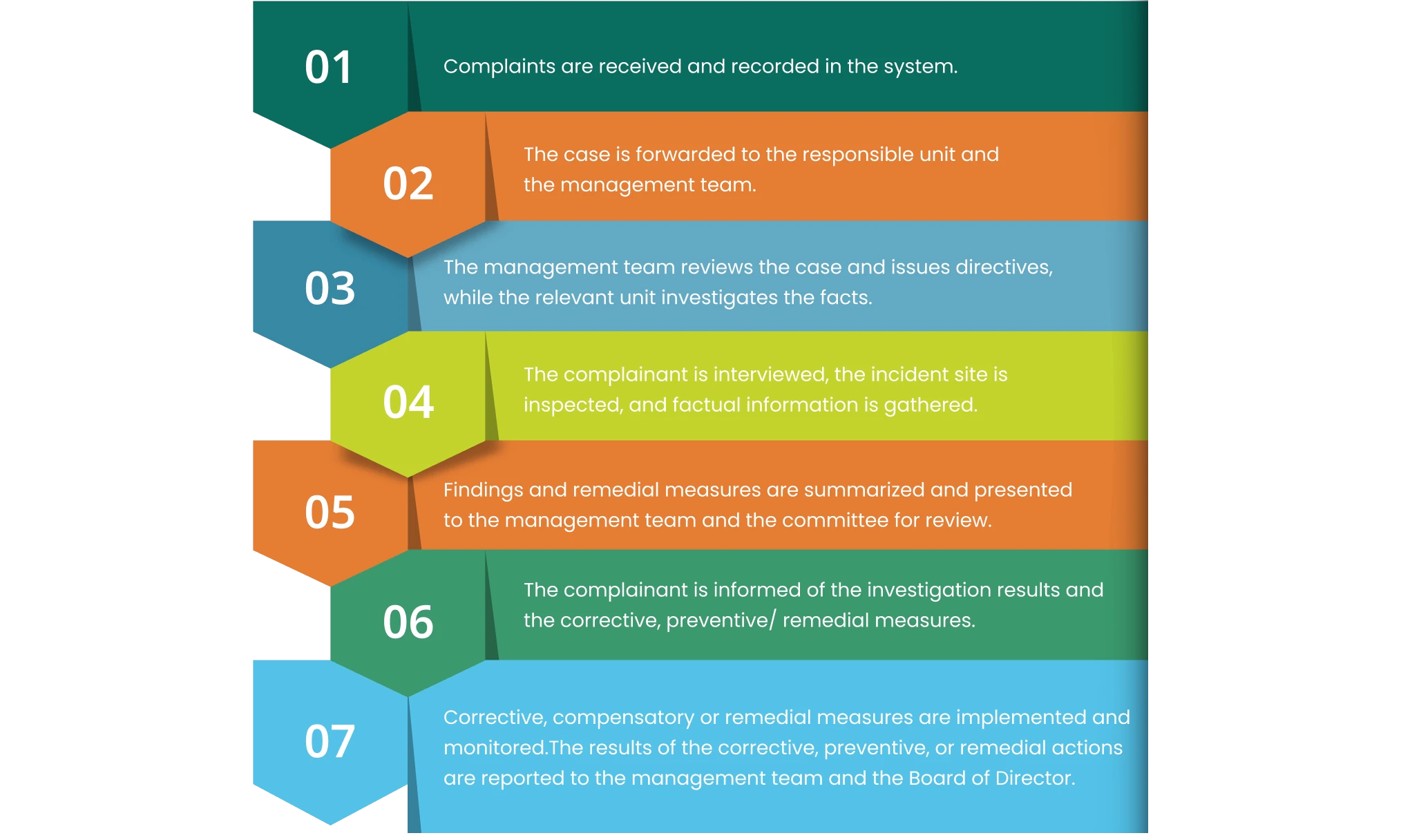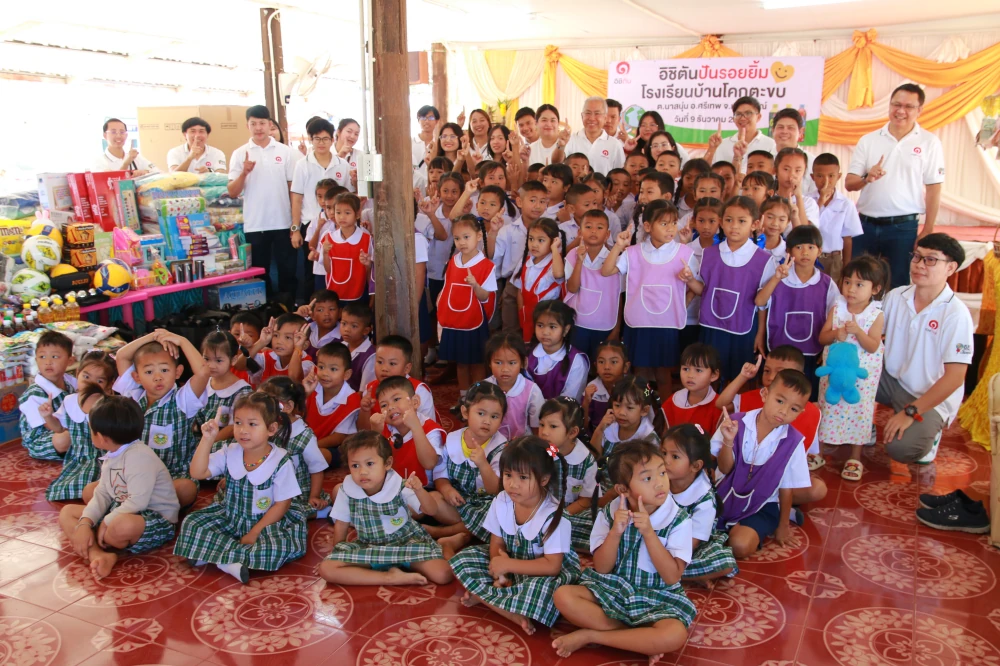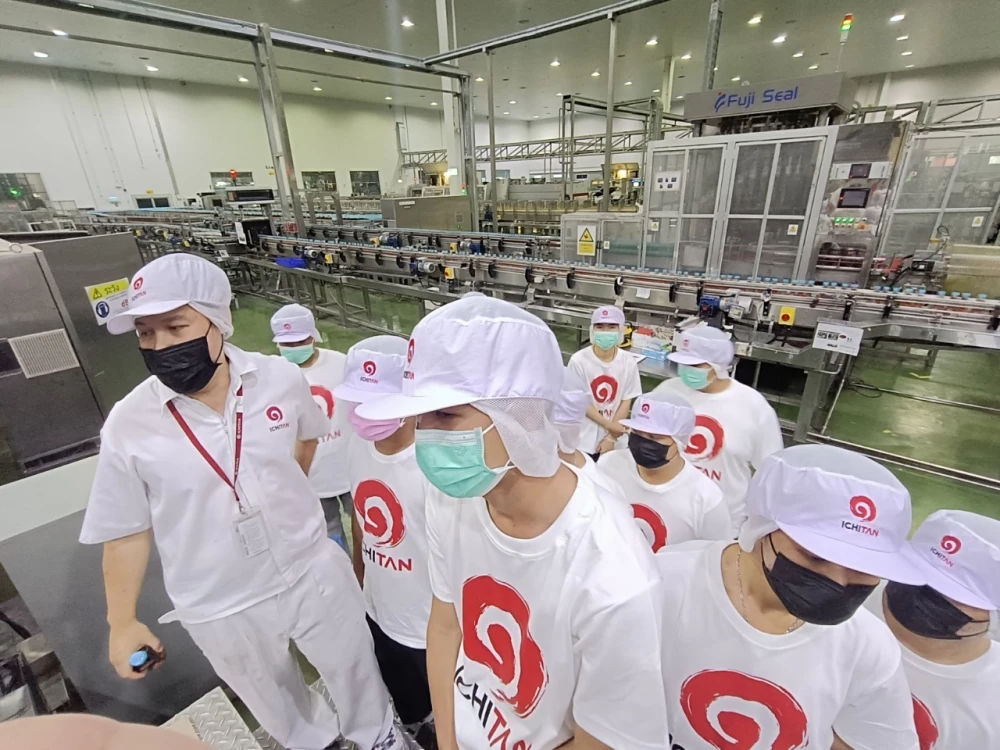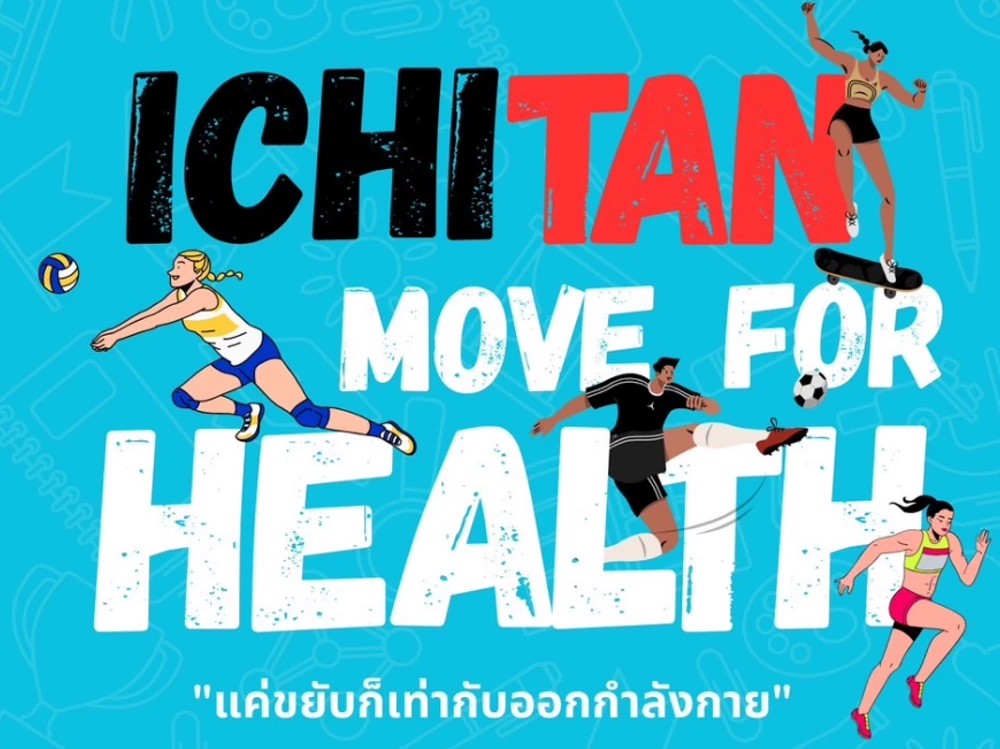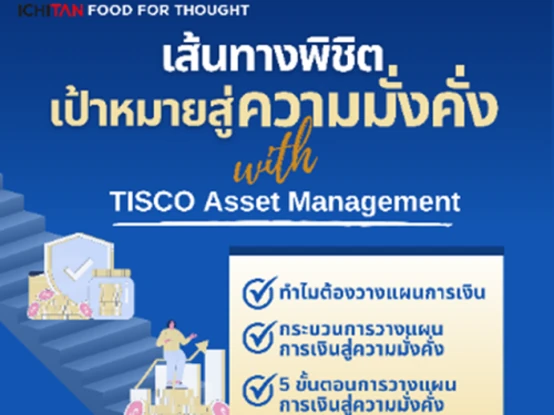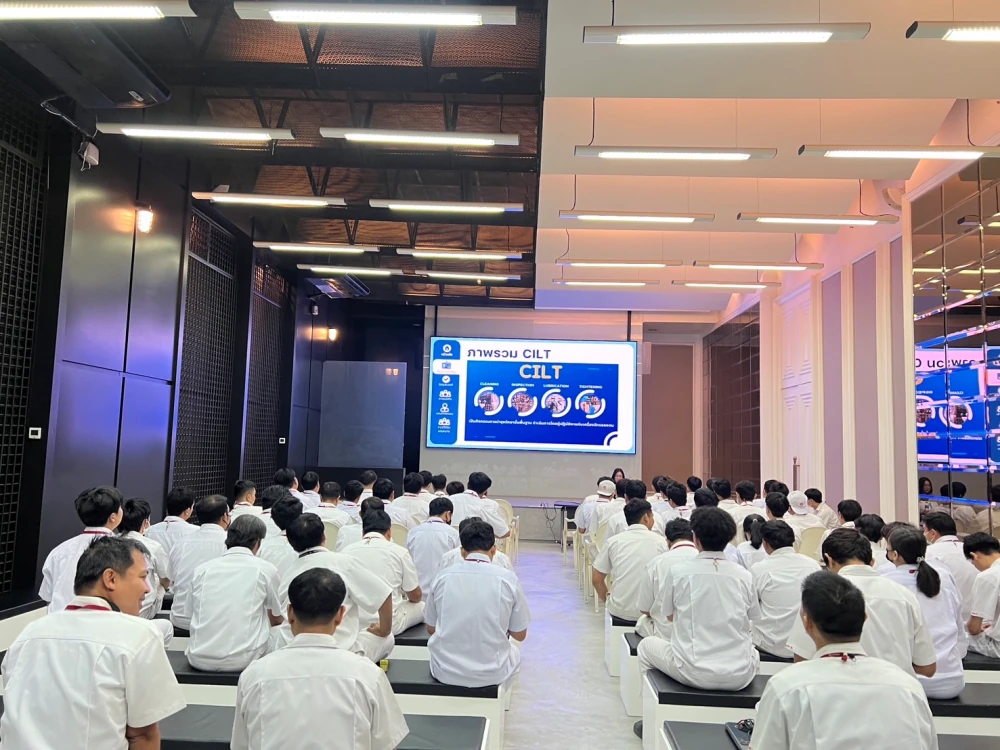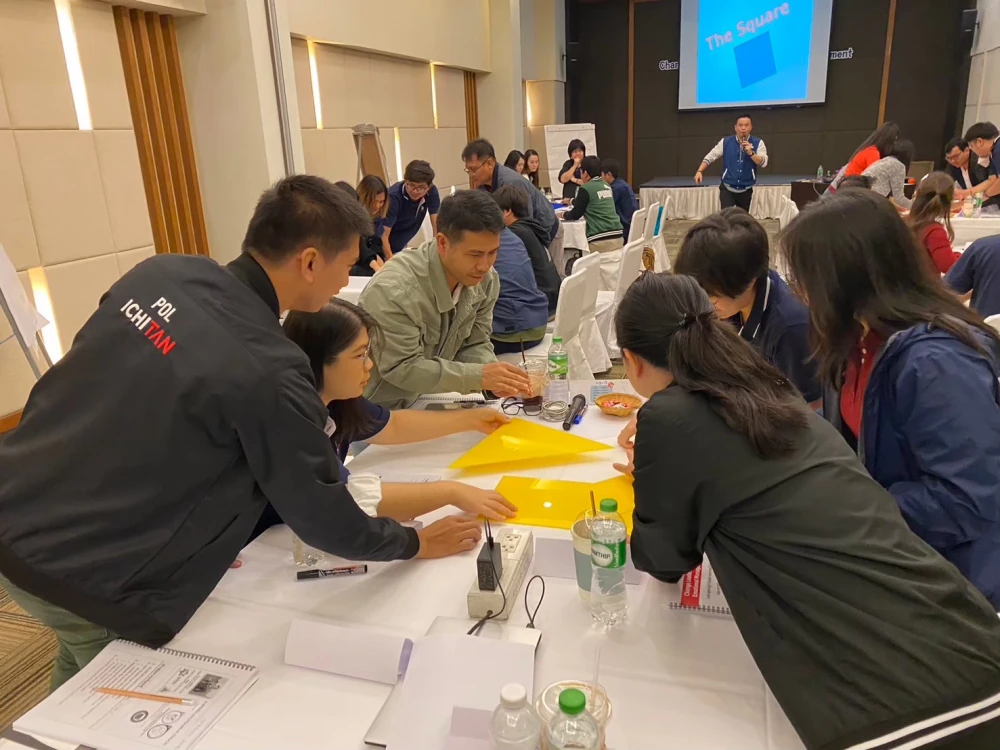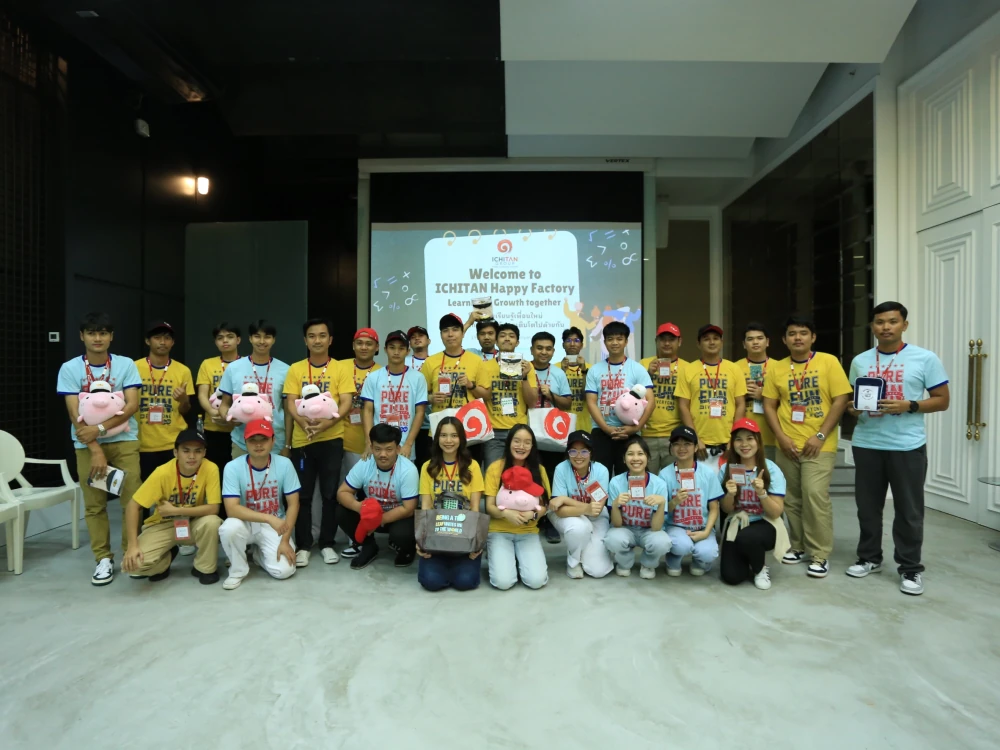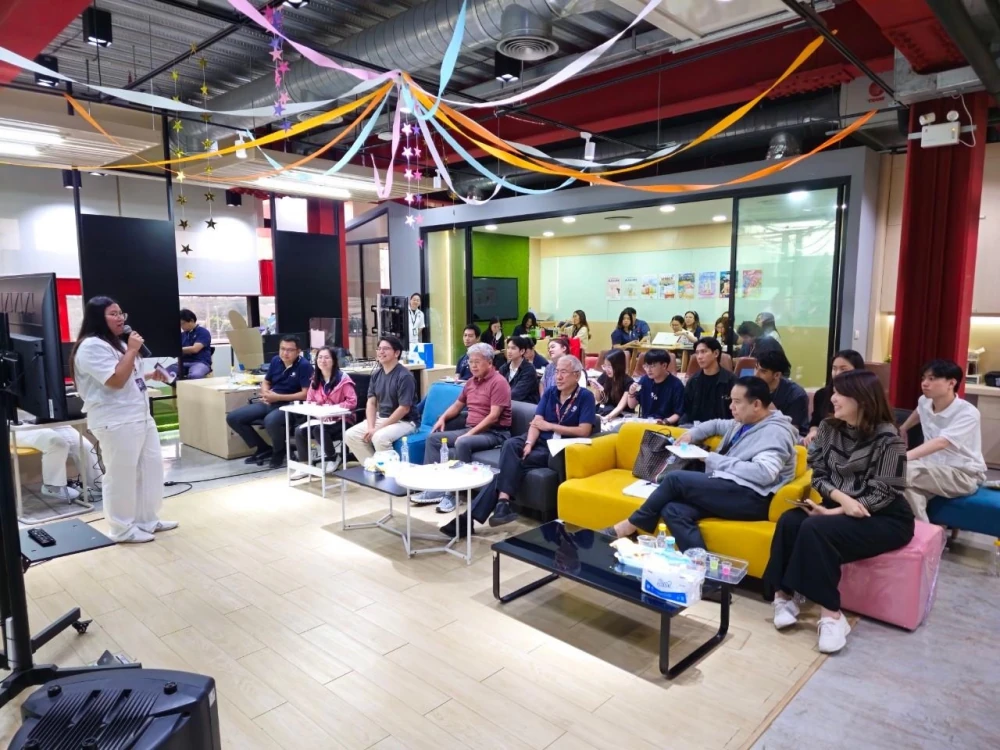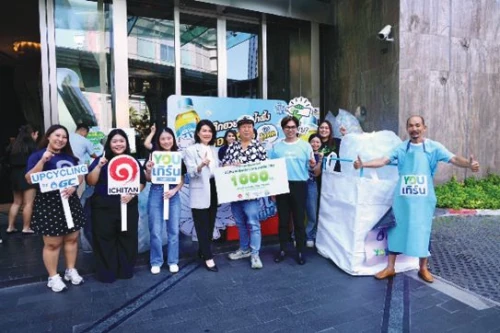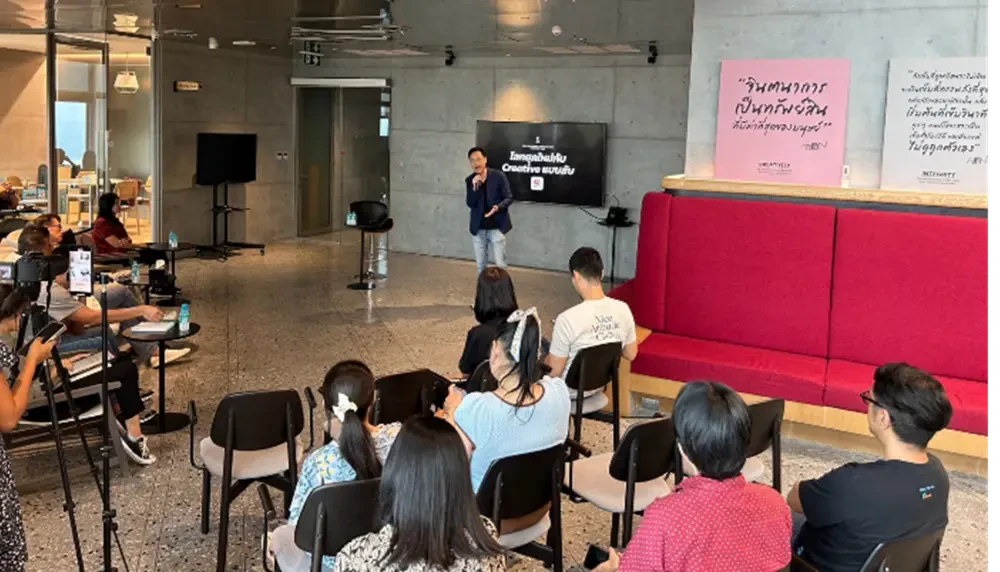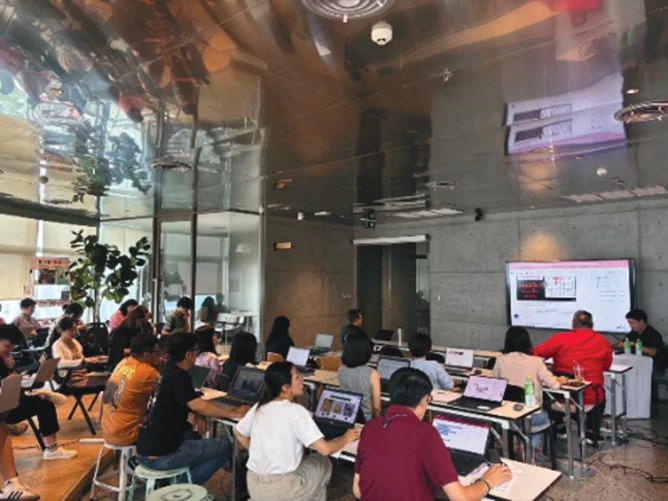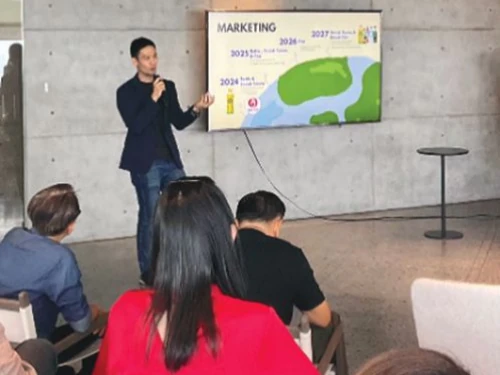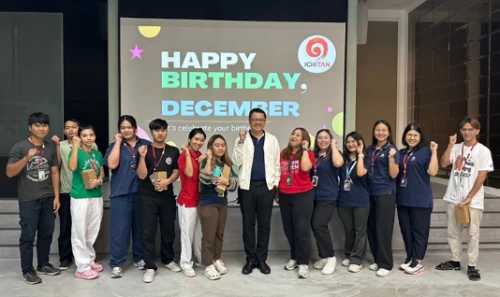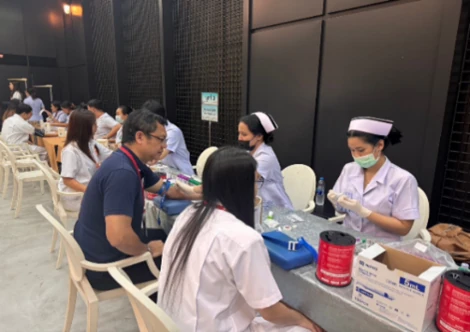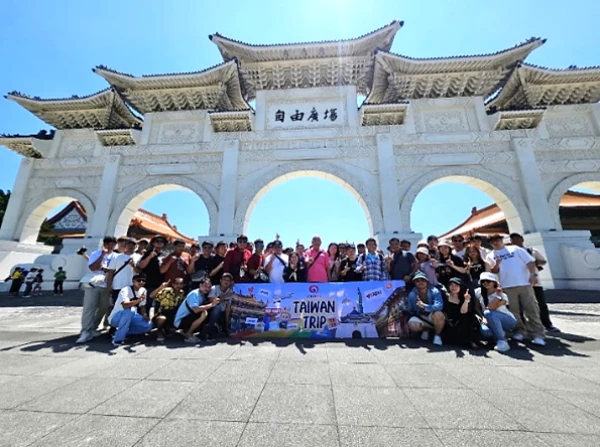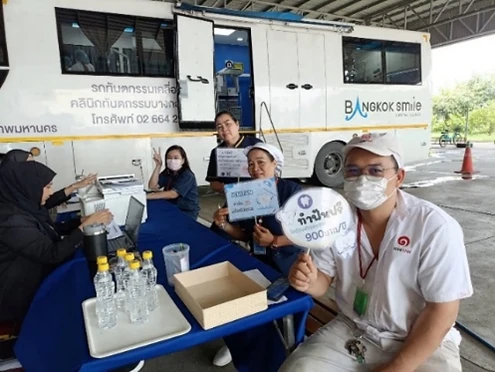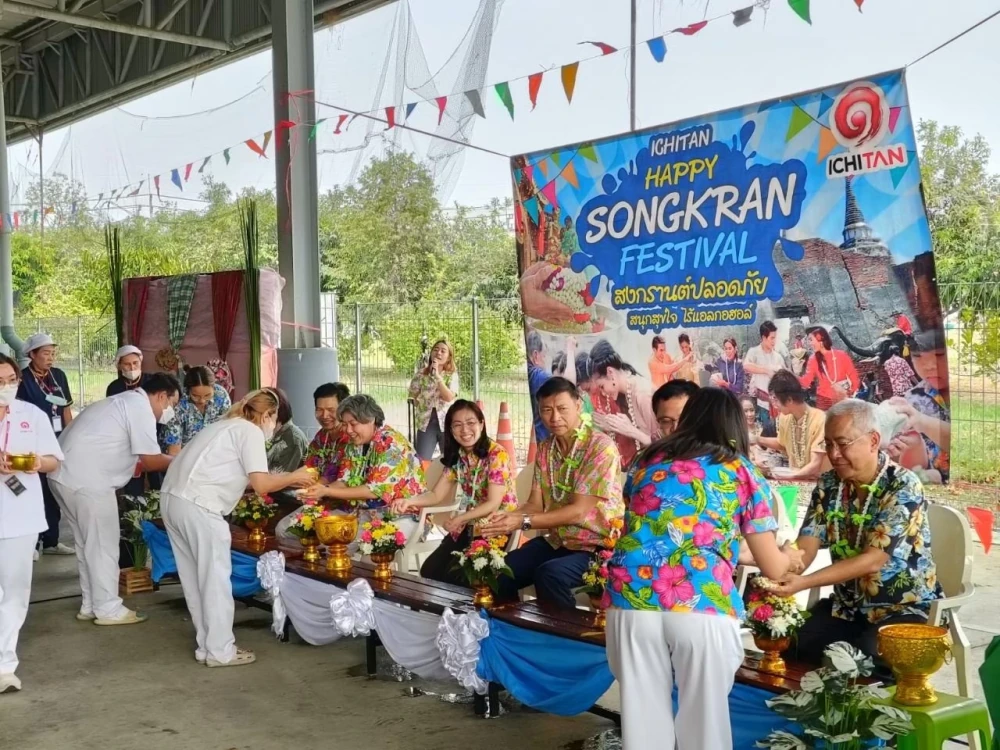
Human Rights and Labour Standards
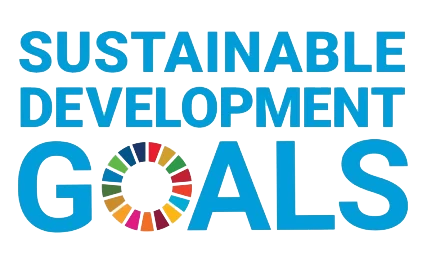
Importance and Mission
“Human rights” is a crucial issue that has garnered global attention, as it is one of the factors that may lead to future conflicts and social inequality. At the same time, the business sector is fundamentally connected to “people” in every aspect of its operations, both directly and indirectly, which may, to some extent, impact human rights violations in various forms. In response to these challenges, the United Nations has introduced the Guiding Principles on Business and Human Rights (UNGP) as a framework for businesses to prevent human rights violations.
Ichitan Group Public Company Limited recognizes the significance of human rights issues and is committed to conducting business responsibly for all stakeholders (employees, business partners, customers, shareholders, investors, local communities and society etc. The Company upholds and respects human rights principles by establishing policies and operational guidelines that align with local laws, international laws and global standards, such as the United Nations Guiding Principles on Business and Human Rights (UNGP), the Universal Declaration of Human Rights (UDHR) and comprehensive human rights risk assessments (Human Rights Due Diligence: HRDD). These efforts aim to prevent and mitigate human rights violations throughout the value chain while promoting awareness and understanding of human rights respect among employees.
Stakeholders Directly Impacted

Employees

Society and Community
Goal and Performance Highlights
Goals
Performance Highlights

The Company was honored with the Human Rights Model Organization Award for the Year 2024 in the Large Business Enterprise Category at the



In 2024, the Company recorded

In 2024, the Company's employee engagement score reached


Management Approach
Policies and operational guidelines
The Company has established human rights policies and operational guidelines with a firm commitment to human rights management. These policies ensure that the Company treats all stakeholders equitably and fairly, in alignment with the United Nations Guiding Principles on Business and Human Rights (UNGP), as well as local labor laws, international laws and global standards addressing key human rights issues.
A Comprehensive Human Rights Due Diligence Process
The organization conducts human rights risk assessments covering all business operations. Preventive and mitigating measures are implemented to address any impacts arising from these risks. Additionally, protection and remediation processes are established to manage and respond to such impacts effectively.
Promotion of Employee Welfare and Internal Activities
A welfare committee is established within the workplace to serve as a communication bridge between employees and the management. Employees are encouraged to participate in providing suggestions and raising concerns. Various activities are organized to foster employee engagement and strengthen their sense of belonging within the organization.
Employee Capacity Development
Employees at all levels are supported in acquiring knowledge and continuously developing their skills. An annual training plan is developed, along with various capacity-building programs within the organization. These initiatives aim to enhance employees' capabilities, improve work efficiency and support career advancement across all professional paths.
Internal Communication within the Organization
Regular communication efforts are made to raise awareness among employees at all levels regarding human rights and fair labor practices. This ensures that all employees are well-informed about these critical issues.
Whistleblowing and Remediation Process
Channels are provided for all stakeholders to report any misconduct or submit complaints related to human rights violations and unfair labor practices. This ensures that any such incidents are appropriately addressed.
Operations and Performance
Gender Diversity
| Gender Diversity | Total (person) |
|---|---|
| Number ofall employees | 401 |
| Number of female employees | 122 |
| Number of male employees | 279 |
Age Diversity
| Age | Female (person) | Male (person) |
|---|---|---|
| Number of employees under 30 years | 38 | 117 |
| Number of employees between 30-50 years | 83 | 149 |
| Number of employees more than 50 years | 1 | 13 |
Religious Diversity
| Religion | Female (person) | Male (person) |
|---|---|---|
| Buddhist | 121 | 268 |
| Christian | - | 3 |
| Islamic | 1 | 8 |
| Not disclosed | - | - |
Personnel classified by position
Senior executives
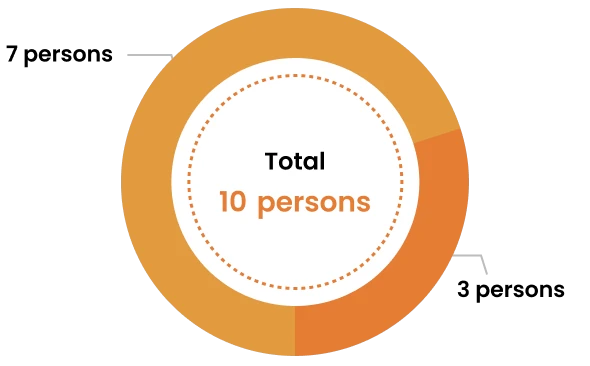
Management level employees
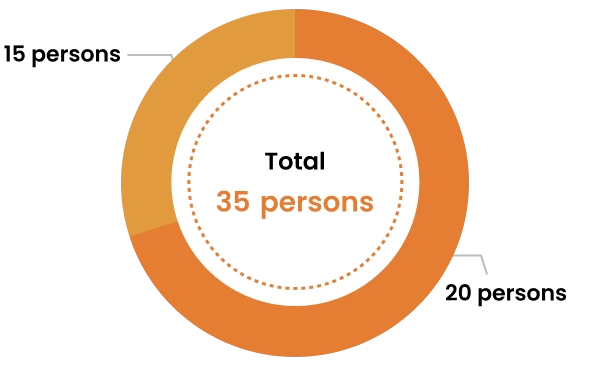
Operational level employees
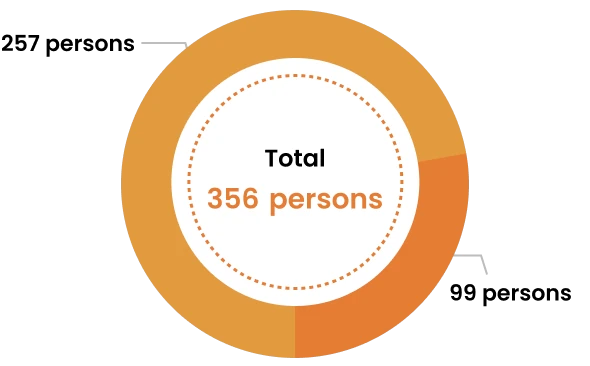
| Position Level | Female (person) | Male (person) |
|---|---|---|
| Senior executives | 3 | 7 |
| Management level employees | 20 | 15 |
| Operational level employees | 99 | 257 |

Number of new employees
51
persons

Number of disabled employees
2
persons

Total employee turnover rate
0.84%

Percentage Female to male employee compensation ratio
1.23 Times
Employee development expenses
amount to 1,078,391.58
Baht/year

Average number of training hours per year
12
hrs./person

The Board of Directors fully recognizes the importance of human rights issues and has therefore mandated the establishment of a “Human Rights Policy” in alignment with the United Nations Guiding Principles on Business and Human Rights (UNGP), as well as local labor laws, international laws, and other global standards. This policy encompasses key human rights issues to ensure that the Company conducts its business responsibly and fairly, upholding the principles of respect for rights and equality without infringing on fundamental rights and human dignity. The Human Rights Policy undergoes regular reviews to reflect significant changes affecting the organization, ensuring its alignment with the current business landscape. Additionally, the Company monitors and reports on its implementation of this policy to the Corporate Governance and Sustainability Committee and the Board of Directors at least once a year. In 2024, the Company conducted a review of its Human Rights Due Diligence (HRDD) process, assessing the impact of its business operations on external stakeholders in a significant manner.

The Company has developed a Human Rights Due Diligence (HRDD) Manual, conducting systematic assessments every 2 years. This process consists of 5 key steps designed to analyze and evaluate human rights risks, implement effective risk management and mitigation measures and ensure continuous monitoring and reporting of progress. The 5 steps are as follows:
The Company conducts human rights risk assessments as an integral part of the comprehensive human rights due diligence process. The primary objective is to identify human rights risks and prevent violations or other negative impacts that may arise from business activities and operations throughout the value chain.
This human rights risk assessment covers 100% of the Company’s operational areas, including its value chain and business activities, such as raw material procurement, transportation, production, distribution, marketing and sales. It also considers 4 stakeholder groups across 12 key human rights issues to ensure a thorough and effective evaluation.
Employee
Working Conditions
Health and Safety
Freedom of Association and Collective Bargaining
Discrimination/Harassment
Unlawful Labor Practices
Protection of Employee Personal Data
Customer
Health and Safety
Privacy and Data Protection
Business Partner/Contractor
Working Conditions
Health and Safety
Discrimination Against Business Partners and Contractors
Community
Health and Safety
In 2024, the Company conducted an impact assessment of its business operations on stakeholders to manage human rights risks effectively.
This assessment specifically considered vulnerable groups that may be at higher risk of human rights violations, including employees, children, indigenous peoples, migrant workers, third-party contract workers and local communities.
Based on the human rights risk assessment covering all 12 key issues, the Company has developed preventive and mitigation measures to address and reduce potential human rights risks should they arise.

Employee’s rights
Risk issues
- Working Conditions
- Health and Safety
- Freedom of Association and Collective Bargaining
- Discrimination/Harassment
- Unlawful Labor Practices
- Protection of Employee Personal Data
Impacts
- Discrimination in employment and the use of forced labor
- Employment of child labor below the legally defined age
- Increased employee turnover rate
- Variability in employee welfare benefits
- Hazards from machinery/exposure to chemicals
- Improper use, storage and disclosure of personal data
Guidelines for preventing and reducing impacts on human rights
Fair and Humane Labor Practices
- Strict compliance with labor laws and human rights principles
- Business operations are conducted without any form of forced labor
- Absolute prohibition of child labor below the legally defined age limit
- Provision of appropriate employee welfare benefits through regular meetings of the Welfare Committee
Occupational Health and Safety
- Adherence to the Company’s safety policies and the Labor Protection Act
- Annual employee health check-ups based on risk factors
- Regular meetings of the Occupational Health and Safety Committee
Personal Data Protection
- Compliance with the Personal Data Protection Policy and the Personal Data Protection Act (PDPA)
- Regular meetings of the Personal Data Protection Working Committee (PDPA Committee)
- Strict adherence to the ISO 27001 requirements

Customer’s rights
Risk issues
- Health and Safety
- Privacy and Data Protection
Impacts
- Right to equality under the law
- Right to legal protection
- Right to privacy
Guidelines for preventing and reducing impacts on human rights
Customer Rights Protection
- A customer complaint mechanism is in place through the Call Center (which handles complaint verification, resolution and follow-up)
- Accessibility is ensured for persons with disabilities to facilitate their access to products and services
- The Company provides compensation for damages caused by its operations, subject to fact-based verification
Personal Data Protection
- Customer consent is obtained before collecting personal data
- Customer personal data is protected and not disclosed to third parties

Business partner/contractor’s rights
Risk issues
- Working Conditions
- Health and Safety
- Discrimination Against Business Partners and Contractors
Impacts
- Right to legal protection
- Right to a good quality of life
Guidelines for preventing and reducing impacts on human rights
Occupational Health and Safety
- Compliance with laws and safety policies related to occupational health and safety
- Provision of training and adherence to workplace safety protocols
- Supply of basic personal protective equipment (PPE) and risk-specific PPE
Occupational Health
- Annual employee health check-ups based on risk factors
- Daily basic health assessments before starting work

Community’s right
Risk issues
- Health and Safety
Impacts
- Right to legal protection
- Right to a good quality of life
Guidelines for preventing and reducing impacts on human rights
Environmental Responsibility
- Implementation of the Green Industry Project: Level 5
Communication and Safety
- Establishment of communication channels/build relationships with communities surrounding the factory
Following the assessment of human rights risk levels, the Company has implemented mitigation measures and remediation actions, as well as regularly reporting its performance to the Corporate Governance and Sustainability Committee, the Risk Management Committee and the Board of Directors on an annual basis. Additionally, the Company communicates and raises awareness regarding human rights practices in an equitable manner through various activities, public relations boards and the internal corporate website.
The Company has established an appropriate remediation process for stakeholders affected by its business activities. In cases of human rights violations, the Company undertakes continuous monitoring, investigation, and reporting in accordance with its prevention and impact mitigation measures for high-risk human rights issues. This ensures that those affected by human rights violations receive appropriate compensation, such as issuing an apology, providing psychological rehabilitation for victims, offering post-incident assistance and providing compensation in both monetary and non-monetary forms. Measures may also include disciplinary actions and protective measures such as restraining orders or guarantees to prevent recurrence. Furthermore, the Company takes actions to mitigate or reduce the impact to an appropriate level in order to control damages and prevent future occurrences.
In 2024, the Company
did not encounter any cases of human rights violations,
therefore, no remediation actions were required.

The Company instills and promotes awareness of its human rights policies among employees and all stakeholder groups through its internal communication system (Intranet) and the sustainability report, which is publicly available on the Company’s website. Additionally, employees are encouraged to participate in practical training on human rights due diligence (HRDD) under the Business and Human Rights Project for the Thai Capital Market Sector (Phase 3). The Company also supports employees at all levels in undertaking basic courses on comprehensive human rights due diligence processes.
In 2024, the Company was recognized as a 2024 Model Organization for Human Rights in the “Outstanding” category under the Large Business Organization category by the Department of Rights and Liberties Protection. This recognition positions the Company as a role model for other organizations in fostering a society that upholds human rights in a sustainable manner.

Results and Benefits Achieved:
The Company respects and treats employees fairly in accordance with the Declaration on Fundamental Principles and Rights as stipulated by relevant laws. It also ensures workplace protection, health and safety for employees through the following practices:
Employment
The Company upholds a policy of transparent and fair employee recruitment based on suitability in terms of knowledge, skills, experience, attitude and conduct. A structured selection process is in place, incorporating written tests, various assessments, and interviews, ensuring no discrimination. The Company affirms equal opportunities and does not consider personal preferences, political opinions, age or disabilities as factors in employment decisions
- Employment of Underprivileged/Vulnerable Groups (Persons with Disabilities)
In 2024, the Company employed 2 persons with disabilities as regular employees in appropriate roles and provided financial support for an additional 2 non-employee persons with disabilities. This employment ratio aligns with legal requirements and aims to provide persons with disabilities opportunities to demonstrate their capabilities, earn a livelihood and reduce the financial burden on their families and society. The Company also complies fully and promptly with its financial contributions to the fund mandated by the Persons with Disabilities Empowerment and Quality of Life Promotion Act, B.E. 2550 (2007), under Sections 33 and 35.


Non-Support for Illegal Child Labor and Forced Labor
The Company does not engage in the employment of illegal child labor, forced labor or slavery. Employment is conducted strictly in accordance with legal and regulatory requirements concerning age, working hours, compensation, health and safety.
Employee Compensation
The Company’s compensation policy ensures fair and equitable salaries in alignment with economic conditions and industry standards. Policies regarding appointments, transfers and incentive rewards are implemented fairly and without discrimination. Employees are provided with appropriate benefits to enhance their quality of life and financial security. The Company also encourages employees to save for the future through regular contributions to the provident fund.
Employee Performance Evaluation
The Company has established a fair performance evaluation system based on an integrated assessment approach. The performance of executives and employees is evaluated once a year, incorporating 2 key components: assessment based on work achievements (Key Performance Index: KPI) and assessment based on collaboration projects or working groups. The evaluation results are used for considerations related to annual salary adjustments, annual bonuses and career advancement. Additionally, the results serve as a basis for individual employee development and holistic team management, driving the Company’s overall effectiveness while fostering employees’ career progression.
The Company analyzes employee performance evaluation results to design training programs or capacity-building initiatives to enhance employees’ knowledge and skills continuously. Employees are categorized into 3 groups: 1) employees with high performance are enrolled in specialized programs such as Talent Management etc. 2) employees with moderate performance participate in the Company’s annual training plan and 3) employees requiring improvement are placed in the Performance Improvement Plan (PIP) program to help them meet the Company’s expected performance levels. PIP serves as a tool to support employees in their self-development, offering them another opportunity to achieve the desired performance outcomes.
- Evaluation Criteria
1. Performance-Based: Evaluation The Company has implemented a Performance Management System to manage the work performance of executives and employees at all levels, ensuring alignment with the Company’s objectives, strategies and goals. At the beginning of each year, individual key performance indicators (Individual KPI) are determined through a mutual agreement between employees and their respective supervisors. These KPIs define specific performance metrics, targets and assigned weightings. The KPIs may be adjusted during the year to align with the Company’s business direction and must correspond with the Corporate KPI.
2. Collaboration Projects or Working Group-Based Evaluation: To promote cross-functional teamwork and support innovative and efficient work models, the Company conducts performance evaluations based on collaboration projects or working groups. This assessment method establishes shared objectives and responsibilities, fostering proactive work approaches that enable the Company to respond swiftly to external changes while effectively reducing operational costs. The outcomes of these initiatives are incorporated as part of the team performance indicators, aligning with the Corporate KPI.
Performance Measurement
The Company classifies performance evaluation results into 5 rating levels as follows:
- Level 5 = Excellent
- Level 4 = Very Good
- Level 3 = Medium
- Level 2 = Fair
- Level 1 = Need Improvement
100%
of employees successfully passed the KPI performance evaluation

Employee Development and Retention
The Company places great emphasis on employee care and human resource development, aiming to foster a sense of belonging beyond the conventional concept of “employees”. The focus is on enhancing three key competencies: Knowledge Competency, Skill Competency, and Attributes Competency. The Company’s employee development policy is designed to cultivate skills and expand potential by providing employees with learning opportunities and career advancement prospects when suitable opportunities arise. Additionally, the Company actively promotes gender equality by encouraging more women to attain leadership positions in a balanced proportion to men. The process begins with conducting a Training Needs Assessment to analyze the necessity of training and to formulate an annual training plan (ICHITAN Training Plan Year) aimed at enhancing employee capabilities. The training requirements are tailored to employees’ job positions and include courses designed to develop operational competencies in line with evolving communication trends. The Company facilitates training programs through both online and offline platforms, reducing employees' travel expenses while optimizing time management and overall productivity.
In 2024, the company had employee development expenses amounting to
1,078,391.58
Baht/per year

The average training hours per year were (Hrs.) were
12
Hrs./person

Additionally, the Company has designed and developed various internal programs to enhance employees’ potential, stimulate creative thinking, and motivate employees to generate new ideas for work improvement. These initiatives align with the Company's human resource development policy, focusing on teamwork and leadership development to achieve organizational objectives. The Company also prioritizes talent retention strategies to ensure employees are prepared to adapt to the rapidly changing and highly competitive beverage industry.
The Company develops an annual training plan, clearly defining the objectives of each training course to align with corporate strategy and legal requirements. Training opportunities are effectively communicated to employees through multiple channels, including the Company’s Intranet system and internal bulletin boards.
Target for 2024
80%
of employees required to attend the designated training courses

Outcome for 2024
87.67%
of employees participated in the designated training courses

Employee Welfare
The Company actively promotes employee well-being by supporting initiatives that improve the quality of life for employees and their families. This approach fosters a positive corporate culture, strengthens employee morale, and enhances job satisfaction. In 2024, the Company’s Workplace Welfare Committee organized various activities related to employee benefits and workplace relations to reinforce these values.
Internal Communication
The Company is committed to transparent and equitable communication of corporate policies and strategic direction across all operational levels. Regular formal and informal meetings are held with employees to provide updates on business performance through the Intranet system and internal media. During significant organizational changes, employees are encouraged to participate and voice their opinions constructively to facilitate smooth transitions.
Relationship within Organization
Employee engagement is a core priority for the Company. Monthly activities are organized to encourage participation and strengthen the bond between employees and the organization. The Company also fosters a warm and inclusive work environment where employees at all levels feel valued.
According to the 2024 survey, most employees are proud of their work and see their responsibilities as important to the organization. This is the result of communicating organizational goals comprehensively to employees at all levels, as well as continuously and consistently developing the necessary knowledge and skills for work, along with a suitable working atmosphere.
The Company communicates the results of the Employee Engagement Survey to employees via email and utilizes these results to improve and develop work processes. For example, to enhance the working atmosphere, the Company has organized the “Collaboration Project Contest 2024”, allowing each department to present ideas that benefit the organization and create a more enjoyable work environment, aligning with the Company’s strategic goals.

In 2024, the employee engagement score was
87%

Grievance process and disciplinary actions
The Company has established a complaint mechanism through which employees can report misconduct or file complaints via the channels specified in the Whistleblowing and Complaint Policy”. Employees who feel they have been subjected to harassment, discrimination, rights violations or victimization have the right to submit complaints through the established grievance process or they may submit their concerns via the suggestion box or consult directly with their respective supervisors.
The Company has measures in place to protect the rights and confidentiality of complainants and whistleblowers who act in good faith. The names, addresses or any other information that may identify the complainant or whistleblower will be kept confidential and access to complaint-related information will be restricted to designated personnel responsible for investigating the matter. Those responsible for handling complaints must maintain the confidentiality of all relevant information and documents and are prohibited from disclosing such information to others, except as required by law.
Regarding disciplinary actions, if an employee fails to comply with regulations or violates company policies, they will receive a warning from their supervisor in accordance with fundamental management principles. The Company does not enforce disciplinary actions involving physical or psychological coercion nor does it permit verbal abuse or unfair treatment of employees. The severity of disciplinary actions will depend on the nature of the violation, intent, consequences and the employee’s past contributions. The disciplinary process follows a step-by-step approach and in cases where termination is warranted, the Company will provide compensation in accordance with labor laws.
Our Activities
Ichitan Group Public Company Limited has continuously carried out sustainability initiatives, focusing on environmentally and socially responsible production.








